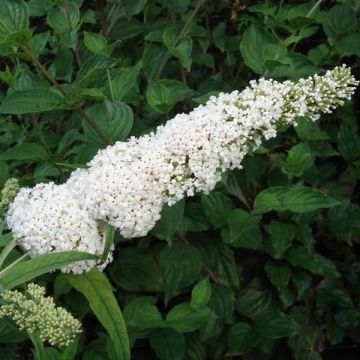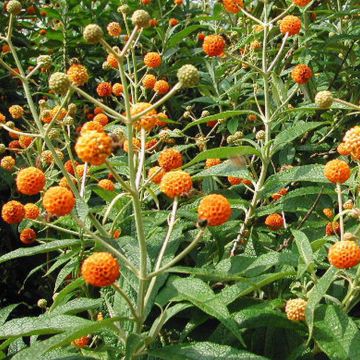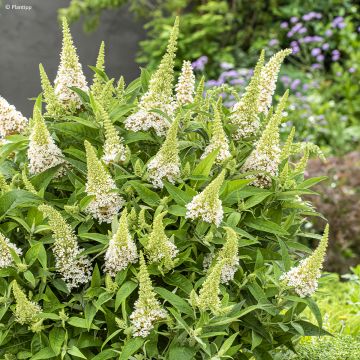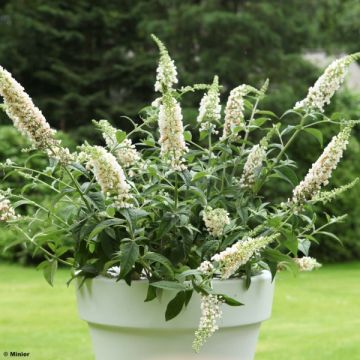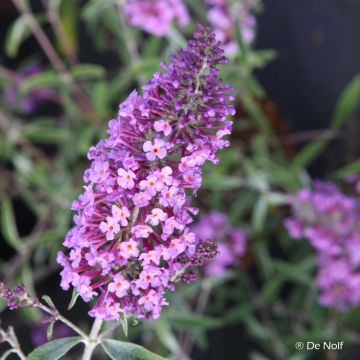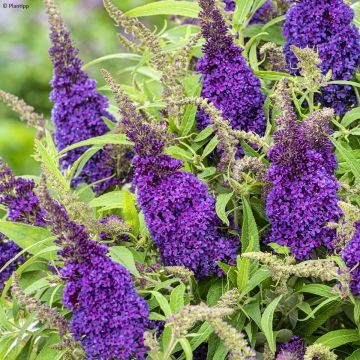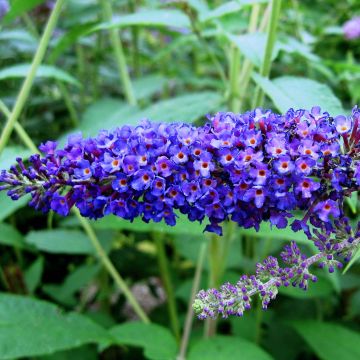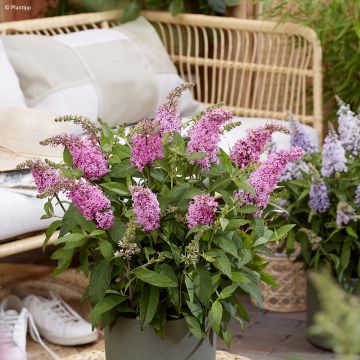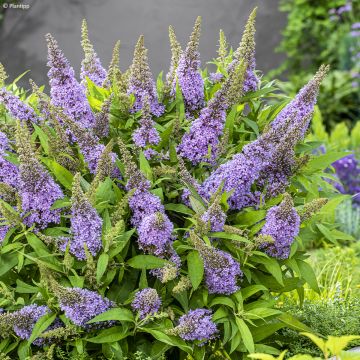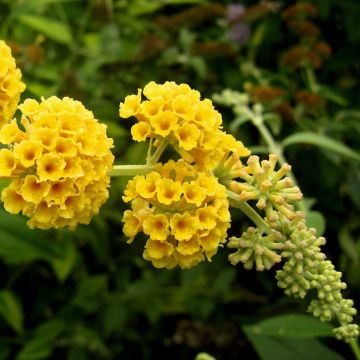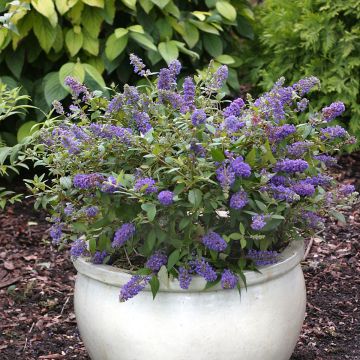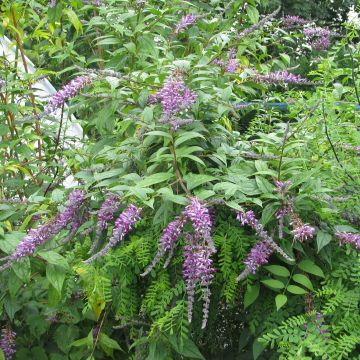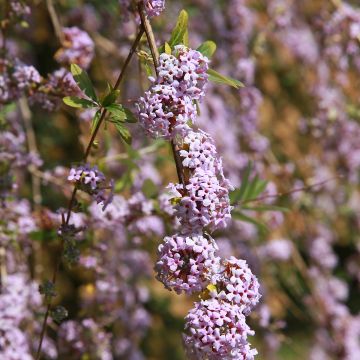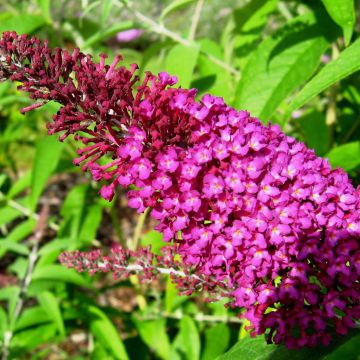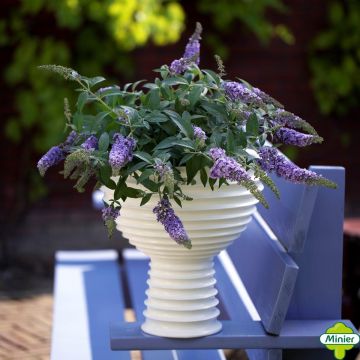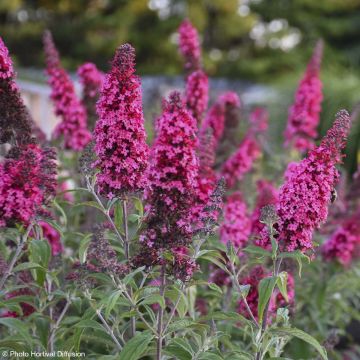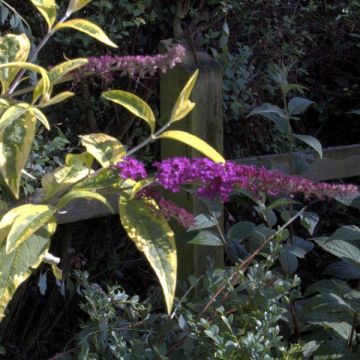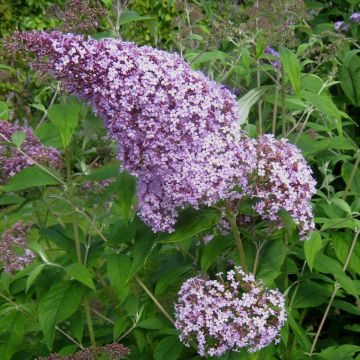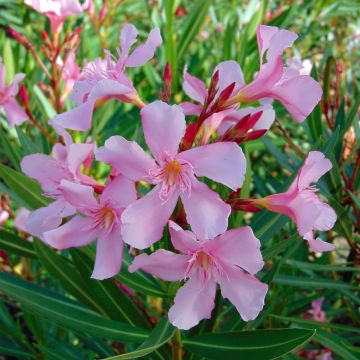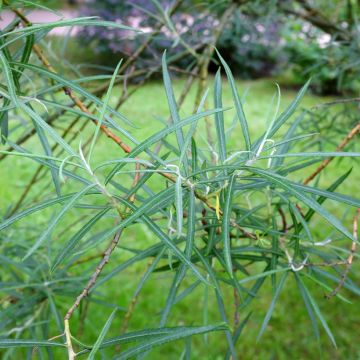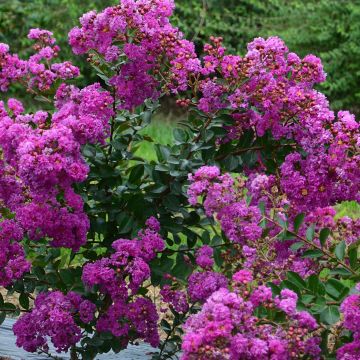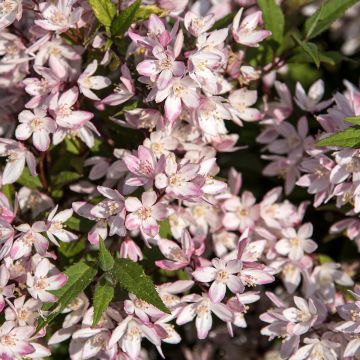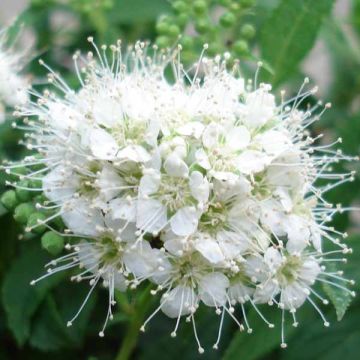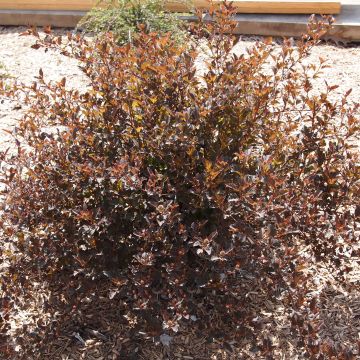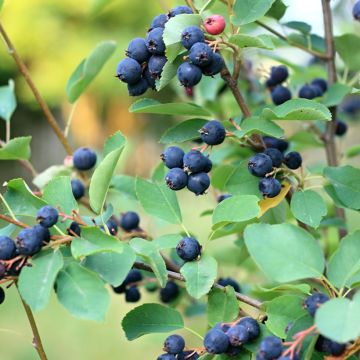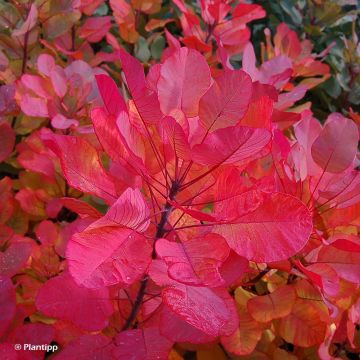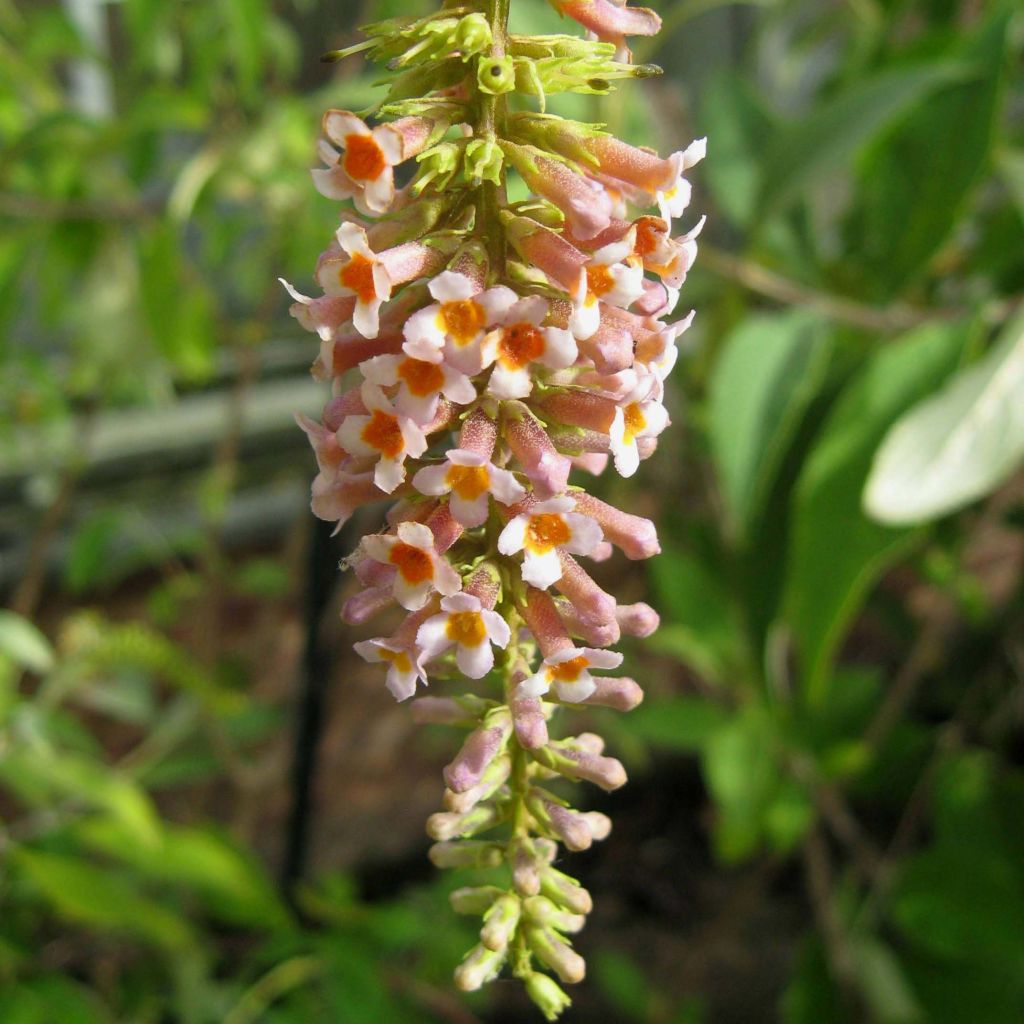

Buddleja macrostachya - Butterfly Bush
Buddleja macrostachya - Butterfly Bush
Buddleja macrostachya
Large spiked Butterfly Bush
Special offer!
Receive a €20 voucher for any order over €90 (excluding delivery costs, credit notes, and plastic-free options)!
1- Add your favorite plants to your cart.
2- Once you have reached €90, confirm your order (you can even choose the delivery date!).
3- As soon as your order is shipped, you will receive an email containing your voucher code, valid for 3 months (90 days).
Your voucher is unique and can only be used once, for any order with a minimum value of €20, excluding delivery costs.
Can be combined with other current offers, non-divisible and non-refundable.
Why not try an alternative variety in stock?
View all →This plant carries a 24 months recovery warranty
More information
We guarantee the quality of our plants for a full growing cycle, and will replace at our expense any plant that fails to recover under normal climatic and planting conditions.
Would this plant suit my garden?
Set up your Plantfit profile →
Description
Buddleja macrostachya is a rare bush in cultivation, yet very ornamental throughout the year and easy to grow, although it requires a mild climate to thrive. It is a deciduous bush with a slightly weeping habit, bearing long pointed leaves which are woolly on the underside. It produces long trailing panicles, filled with small pale pink or yellow flowers, punctuated with an orange throat. The flowers emit a sweet honey scent, which is highly attractive to bees. The flowers appear in spring or summer and sometimes last until the first frost. In winter, its branches are revealed, covered in interesting ragged grey and brown bark. Definitely worth discovering!
Buddleja macrostachya is a large-growing botanical species in the Scrophulariaceae (buddleja) family. It is native to China, Bangladesh, India, Thailand, and Vietnam. In the wild, it grows between 900 m and 3200 m (2953 ft and 10499 ft) altitude, in well-drained, preferably limestone soils. It enjoys cool to moist ground, not far from watercourses which it tends to colonise the banks of. In our climates, it will reach a size of about 3 m (9.9 ft) in all directions, with rapid growth. The bush is composed of quadrangular winged stems, with brown bark that peels with age. The foliage, deciduous in cool climates, consists of almost sessile leaves, with a narrow, pointed, crenate edge, measuring up to 25 cm to 30 cm (9.8 in to 11.8 in) long and 5 cm (2 in) wide. They are green and shiny on the upper side, lighter and hairy on the underside. Flowering usually takes place in late spring or summer and is only stopped by cold weather. Thin panicles up to 20 cm (7.9 in) long and 4 cm (1.6 in) in diameter appear at the ends of the current year's branches. They are composed of small four-petaled bi-coloured flowers, about 3 mm to 4 mm (0.1 in to 0.2 in) wide. The flowering is followed by the formation of capsules 1 cm (0.4 in) long and 2 mm (0.1 in) wide, containing numerous easily germinating seeds. In deep soil and once well established, this buddleja tolerates summer drought quite well.
Whether planted as a solitary plant or in a group, in a hedge or at the back of a perennial bed, Buddleja macrostachya is a very colourful bush that will enhance the garden or even a terrace, as it is also suited to pot cultivation. Its long flowering accompanies that of all other flowering bushes, from spring to autumn. You can also plant it in a tall, informal hedge at the edge of the garden, with other buddlejas, as there is a wide choice in this genus, starting with the winter-flowering Buddleja officinalis, the spring-flowering B. 'Lochinch', the hybrids of B. x weyeriana ('Sungold', 'Honeycomb', 'Flower Power', 'Moonlight') or the dwarf varieties like 'Nanho Blue', and 'White Chip'. Gardeners in cold areas can welcome Buddleja macrostachya on a terrace during warm weather and see it flower in the greenhouse as early as February.
Report an error about the product description
Buddleja macrostachya - Butterfly Bush in pictures
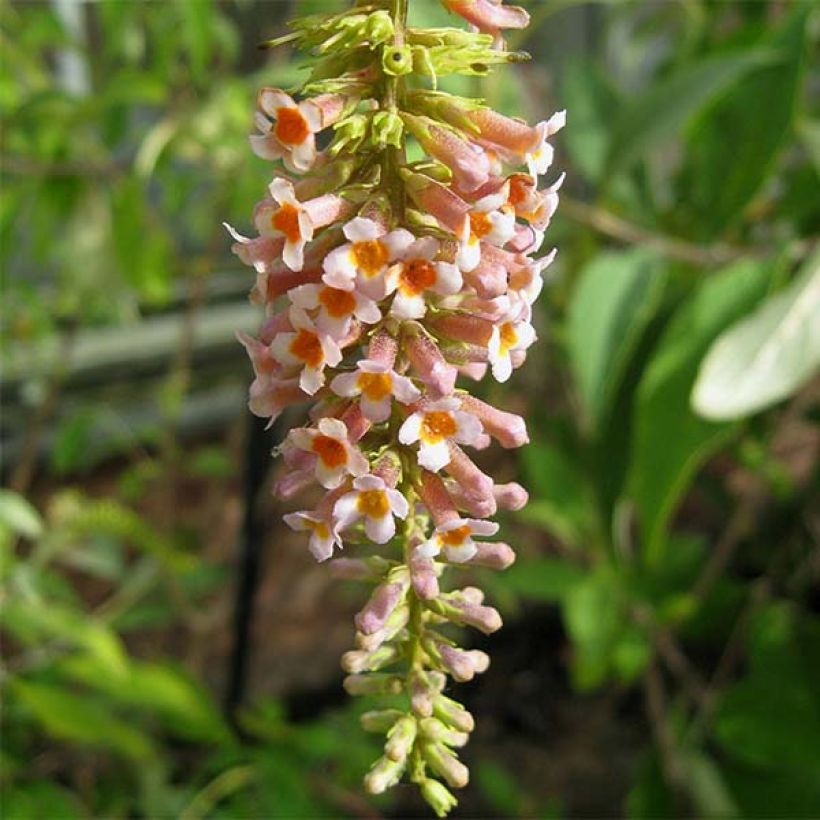

Plant habit
Flowering
Foliage
Botanical data
Buddleja
macrostachya
Buddlejaceae
Large spiked Butterfly Bush
China
Other Buddleja -Butterfly bush
View all →Planting and care
Buddleja macrostachya prefers fertile soils that remain fairly moist in summer, but it performs well in drier soil in summer and quite poor soil once established. However, its growth will be slower and slightly less luxuriant. Summer heat is not a problem; however it fears cold and waterlogged soil in winter, which can harm its hardiness. In mild climates, plant in autumn. In cooler areas, plant in spring. Choose any well-drained, preferably limestone, light and fertile soil. Plant in full sun and in a sheltered position in colder climates. Prune in late winter or autumn, as the bush flowers on the current year's wood. It can be subject to attacks from red spider mite in dry conditions.
Cultivation in pots:
In areas colder than -10° C (14° F), grow in a pot: choose a large container that will sit outside from May to September, in full sun. Water regularly to promote flower production. Prune after flowering to reduce the size of the bush so that it can be overwintered in a cool, very bright, unheated but frost-free place.
Reduce watering, and allow the substrate to dry between waterings. Fertilise in spring with a slow-release fertiliser for flowering shrubs.
Planting period
Intended location
Care
This item has not been reviewed yet - be the first to leave a review about it.
Similar products
Haven't found what you were looking for?
Hardiness is the lowest winter temperature a plant can endure without suffering serious damage or even dying. However, hardiness is affected by location (a sheltered area, such as a patio), protection (winter cover) and soil type (hardiness is improved by well-drained soil).

Photo Sharing Terms & Conditions
In order to encourage gardeners to interact and share their experiences, Promesse de fleurs offers various media enabling content to be uploaded onto its Site - in particular via the ‘Photo sharing’ module.
The User agrees to refrain from:
- Posting any content that is illegal, prejudicial, insulting, racist, inciteful to hatred, revisionist, contrary to public decency, that infringes on privacy or on the privacy rights of third parties, in particular the publicity rights of persons and goods, intellectual property rights, or the right to privacy.
- Submitting content on behalf of a third party;
- Impersonate the identity of a third party and/or publish any personal information about a third party;
In general, the User undertakes to refrain from any unethical behaviour.
All Content (in particular text, comments, files, images, photos, videos, creative works, etc.), which may be subject to property or intellectual property rights, image or other private rights, shall remain the property of the User, subject to the limited rights granted by the terms of the licence granted by Promesse de fleurs as stated below. Users are at liberty to publish or not to publish such Content on the Site, notably via the ‘Photo Sharing’ facility, and accept that this Content shall be made public and freely accessible, notably on the Internet.
Users further acknowledge, undertake to have ,and guarantee that they hold all necessary rights and permissions to publish such material on the Site, in particular with regard to the legislation in force pertaining to any privacy, property, intellectual property, image, or contractual rights, or rights of any other nature. By publishing such Content on the Site, Users acknowledge accepting full liability as publishers of the Content within the meaning of the law, and grant Promesse de fleurs, free of charge, an inclusive, worldwide licence for the said Content for the entire duration of its publication, including all reproduction, representation, up/downloading, displaying, performing, transmission, and storage rights.
Users also grant permission for their name to be linked to the Content and accept that this link may not always be made available.
By engaging in posting material, Users consent to their Content becoming automatically accessible on the Internet, in particular on other sites and/or blogs and/or web pages of the Promesse de fleurs site, including in particular social pages and the Promesse de fleurs catalogue.
Users may secure the removal of entrusted content free of charge by issuing a simple request via our contact form.
The flowering period indicated on our website applies to countries and regions located in USDA zone 8 (France, the United Kingdom, Ireland, the Netherlands, etc.)
It will vary according to where you live:
- In zones 9 to 10 (Italy, Spain, Greece, etc.), flowering will occur about 2 to 4 weeks earlier.
- In zones 6 to 7 (Germany, Poland, Slovenia, and lower mountainous regions), flowering will be delayed by 2 to 3 weeks.
- In zone 5 (Central Europe, Scandinavia), blooming will be delayed by 3 to 5 weeks.
In temperate climates, pruning of spring-flowering shrubs (forsythia, spireas, etc.) should be done just after flowering.
Pruning of summer-flowering shrubs (Indian Lilac, Perovskia, etc.) can be done in winter or spring.
In cold regions as well as with frost-sensitive plants, avoid pruning too early when severe frosts may still occur.
The planting period indicated on our website applies to countries and regions located in USDA zone 8 (France, United Kingdom, Ireland, Netherlands).
It will vary according to where you live:
- In Mediterranean zones (Marseille, Madrid, Milan, etc.), autumn and winter are the best planting periods.
- In continental zones (Strasbourg, Munich, Vienna, etc.), delay planting by 2 to 3 weeks in spring and bring it forward by 2 to 4 weeks in autumn.
- In mountainous regions (the Alps, Pyrenees, Carpathians, etc.), it is best to plant in late spring (May-June) or late summer (August-September).
The harvesting period indicated on our website applies to countries and regions in USDA zone 8 (France, England, Ireland, the Netherlands).
In colder areas (Scandinavia, Poland, Austria...) fruit and vegetable harvests are likely to be delayed by 3-4 weeks.
In warmer areas (Italy, Spain, Greece, etc.), harvesting will probably take place earlier, depending on weather conditions.
The sowing periods indicated on our website apply to countries and regions within USDA Zone 8 (France, UK, Ireland, Netherlands).
In colder areas (Scandinavia, Poland, Austria...), delay any outdoor sowing by 3-4 weeks, or sow under glass.
In warmer climes (Italy, Spain, Greece, etc.), bring outdoor sowing forward by a few weeks.






























